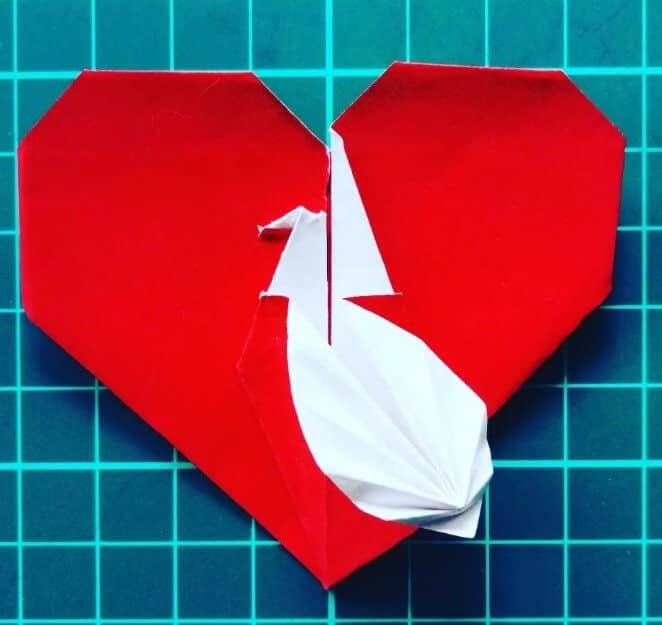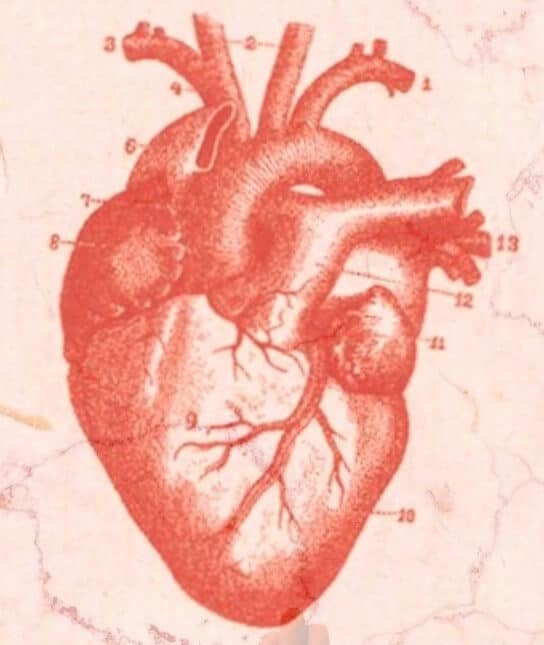Wondering what is the real meaning of Kokoro? Here's a detailed explanation of the Japanese word kokoro.
There are millions of words in the Japanese language that many people want to know the meanings of. While some Japanese words have conclusive meanings, some have two or more meanings.
And there are also a couple of Japanese words that can mean something and yet be perplexing to understand.
One such word is “Kokoro” which is a word of Japanese origin that possibly means “heart” in English. Although the widely accepted English translation of Kokoro is heart, there are some divisive facts that prove that Kokoro can have a much deeper meaning.
Or it could be a subjective word that people can use at their will to fit their expressions and sayings.
If you’re already intrigued to know what mysterious meanings lie ahead of the word Kokoro then you’re in the right place.
We’ve brought you every possible meaning of Kokoro, make sure to check it out down below!
Meaning Of Kokoro
Kokoro is a Japanese word that may seem simple to pronounce but it’s definitely one of those words that have a deep meaning to it.
The most popular English meaning for Kokoro is heart, although the heart can be an acceptable meaning, it’s not the only meaning a word like Kokoro can have.

By heart, we don’t mean the literal human heart, but the conscience most of us refer to as the heart. Kokoro can also mean the human mind, soul, conscience, or anything that makes a human a human.
The word Kokoro is written in the Japanese ideogram as (心) and what’s interesting about this ideogram is that its meaning can alter depending on the context it’s used in.
For instance, Kokoro (心) can mean the soul, spirit, or mind. Kokoro is a Japanese noun word that’s also mostly used in movies, anime, songs, and what not to refer to the heart or mind of a person.
If a person wants to compliment someone for a good action they’ve committed then they can generally say (いい心) “I Kokoro” which means “Good heart” in English.
The expression actually hints that the person has a good heart as in compassion and concern for another person.
On the contrary, when someone does something unacceptable and cruel then the Japanese people would refer to that person as someone with a spoiled heart (甘やかされて育った心) which is pronounced as “Amayakasa rete sodatta kokoro”.
Is Kokoro A Word Of Japanese Origin?
A lot of people think that Kokoro is a word of Japanese origin which is not quite true because Kokoro is originally a Chinese word.
The Japanese letters and characters were historically derived from Chinese characters hence there are multiple similarities between Chinese and Japanese letters.
The Chinese character 心 which means Kokoro was written like the human heart and the very idea of using the character for the metaphorical heart also began then.

Besides, the character looked similar to a human heart, the Chinese people also presumed that any psychological functions and emotions like love, care, honesty, compassion, humanity, etc came from a person’s heart.
In other words, the Chinese believed that the heart was solely responsible for a person to be who they are and act according to their inner mind and conscience.
Hence, the character 心 (Kokoro) was used by the Chinese to refer to several concepts of a person’s inner self like mind and soul.
This idea was also derived by the Japanese as they also believed that someone’s heart actually depicts their true intentions and colors. As a result, the Japanese people also began using the Kokoro character to refer to any human emotions that come from the heart or mind of a person.
Correlation Between Heart and Mind
Are the Japanese and Chinese the only people to believe that the heart has a correlation with several human emotions and intentions?
Pretty sure they aren’t the only ones because the concept of having a good heart makes one a good human is a universal idea that’s believed by most people across the world.
It may seem like we’re getting philosophical here but there are countless instances where most humans relate their actions, be they right or wrong, to their intentions and conscience.
Now intentions and conscience are only internal to a human being’s self and everybody believes that their own heart is responsible for their intentions and actions.
The human mind on the other hand is responsible for making decisions and being intellectual. While the mind can make any decision it wants, it’s the heart that lets a person choose to act upon it.
That’s why many people fall in love without realizing it and are willing to do anything for their loved ones although their mind has made a different decision.
With that being said, Kokoro can either mean mind, heart, or soul in English but to the Japanese people, Kokoro is more like a word that unifies both the heart and mind and doesn’t differentiate between them.
The inability to find a perfect translation for the word Kokoro has made the non-Japanese speakers come up with the heart and mind concept although the Japanese people see both as one.
Alternative Words For Heart In Japanese
Kokoro is one interesting word for heart in Japanese but that’s not the only word that refers to the heart, mind, and soul of a person. Another popular Japanese word that has the same meaning as Kokoro is “Ki” which is written in Japanese ideograms as 気.
The word “Ki” (気) is often used by the Japanese people when asking how one person is doing and feeling. Ki is generally used when conversing with someone about feelings, emotions, spirituality, and intentions.
This gives us an understanding that the word was derived from the notion of how a person’s heart is behind a person’s state of mind.
If you wish to learn more Japanese words that can be used instead of Kokoro or Ki then make sure to check out our list of alternative words for heart in Japanese below.
| Alternative Words For Heart In Japanese | Pronunciation | English Meaning |
| 心臓 | Shinzo | Heart, Cardiac, Cardio |
| 思い | Omoi | Feelings, Desire, Heart, Mind, Love |
| 魂 | Tamashi | Soul, Spirit |
| 中心 | Chushin | Heart, Middle, Center |
| 頭 | Atama | Mind, Head, Brain |
| 都心 | Toshin | Heart, Inner part |
| 霊魂 | Reikon | Spirit, Soul, Feelings |
| 脳 | Nou | Mind, Brain |
| 精神 | Seishin | Heart, Soul, Mind, Spirit, Intentions |
| 聖霊 | Seirei | Spirit |
Most of these words have meanings additional to heart yet they can still be used to refer to heart, mind, or soul in a metaphorical context.
When And How To Use The Word Kokoro
In Western concepts when speaking of love we relate it to the heart while when speaking of intelligence we relate it to the mind or brain and when looking at someone’s overall personality we tend to judge a person based on their intentions and actions.
However, the Japanese or Eastern traditions believe the heart, mind, and soul to be one hence the word Kokoro is used to refer to all of them in most contexts. Therefore, let’s learn how Kokoro can be used in different circumstances.
- When Talking With Loved Ones - As we said, the heart is where love is so when you’re with your loved ones you can use the word Kokoro to express how much you love them and care for them. A phrase you can tell them is “Anata wa watashi no kokoro o ai de mitashita” which means “You filled my heart with love”.
- When Complimenting Someone’s Kind Actions - Kokoro is also the word the Japanese people use when referring to the intentions, and actions of a person. If someone was to help an elderly or disabled person you can compliment them by saying “Anata wa yoi kokoro o motte imasu” which means “You have a good heart”.
- When Speaking In A Psychological Context - When it comes to psychology we often speak about our minds and the Japanese people use Kokoro to refer to the human mind as well. If you want to help someone who’s stressed out you can tell them “Kokoro o heion ni tamotsu” which means “Keep your mind at peace”.
- When Talking About Spirituality - Spirituality is often connected with one’s soul as the Japanese people believe that those who practice religion, respect others, take care of the environment, etc will ultimately make a person have a pure soul. To advise someone to engage in prayers you can tell them “Inori wa hito o yoi tamashī ni shimasu” which means “Prayers make a person have a good soul”.
Kokoro Meaning Japanese Heart: FAQs
What is Japanese Kokoro?
What does Kokoro mean in English?
What is the difference between Kokoro and Shinzou?
How do you say Kokoro in English?
Also Read




